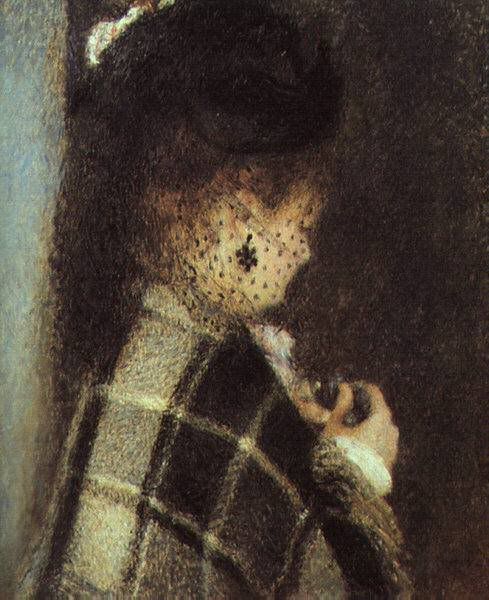 So I have to write a paper on disguise in 18th-century literature. I love disguise. I even kind of love 18th-century literature, so this topic is actually pretty exciting. What I don't like is the page limit, because 4-6 pages is just not going to be enough to spout all my thoughts on masking and taking on other identities.
So I have to write a paper on disguise in 18th-century literature. I love disguise. I even kind of love 18th-century literature, so this topic is actually pretty exciting. What I don't like is the page limit, because 4-6 pages is just not going to be enough to spout all my thoughts on masking and taking on other identities.My favorite book about disguise is not 18th century, but rather a retelling of the Cupid and Psyche myth called Til We Have Faces by C. S. Lewis. The main character, because she is not as beautiful as her sister Psyche, but extremely smart and a kick-ass Queen, decides to hide her face behind a veil. She comments on how most of her subjects cannot imagine that behind the veil is just an ugly woman; they say she's a goddess, or so beautiful that her face would stun anyone who looked on it, or that she's faceless, or any number of things except the simplest explanation.
That's the awesome thing about disguise in literature. Characters get to try on someone else's life or identity for a while, and basically become whomever they want. How they react and how other characters react to them says a lot about their personalities and motives, and I know more than once Shakespeare has used disguise to show characters' stupidity or malleability.
 But often characters go into these other personas thinking they'll have unlimited freedom, and they just don't get it. They have rules and restrictions placed on them that they didn't expect. The Queen in Lewis's book is free from the stigma she'd receive if she were ugly, and endowed with a divine status by her more superstitious subjects. But she can never lift that veil, as it makes her Queen. Once she's put it on, she cannot revert to her status as an individual with faults and feelings like anyone else.
But often characters go into these other personas thinking they'll have unlimited freedom, and they just don't get it. They have rules and restrictions placed on them that they didn't expect. The Queen in Lewis's book is free from the stigma she'd receive if she were ugly, and endowed with a divine status by her more superstitious subjects. But she can never lift that veil, as it makes her Queen. Once she's put it on, she cannot revert to her status as an individual with faults and feelings like anyone else.She has to supercede these limitations and own her original identity, though. The Queen takes a spiritual journey through her sister's trials -- her search for herself is connected with Psyche's search for Cupid. They're two halves of a whole, and the meaning of Psyche's name ("soul"), makes her representative of her sister's soul and identity.
That's true of anyone who disguises him or herself in literature; they always have to return to their own identity when all is said and done, and it's only when that happens that the world is right again.
Which, I guess, brings me back to Joseph Campbell's hero's journey...which is another topic for another blog post. :)




No comments:
Post a Comment